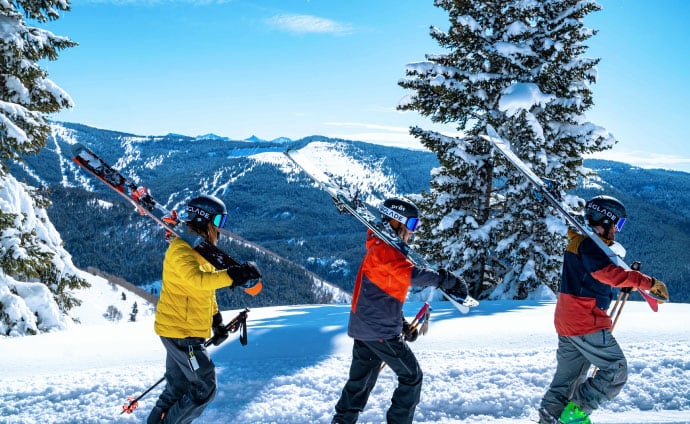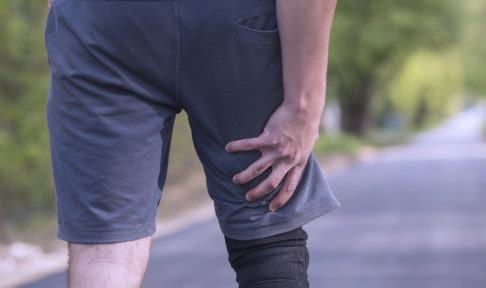All good physios will tell you the same thing about skiing and snowboarding injuries — that the likelihood of them occurring on day two of a snow trip is far greater than day one, simply because people are tired and haven’t prepared properly.
While there are a whole lot of different ways a physio can help you prepare in the lead up to the snow season, there are a few things you can do while you’re actually up the mountain to make sure you get through an entire week-long trip — not just the first day!
One of Spectrum’s lead physios, Ant Brightwell, says that one of the things they always try and instill in clients before they head off is the need to find a balance between load and recovery.
It’s so important to recognise that if you’re going away for a week and you’re going to be skiing every day, your body is going to get tired, same as if you decided to go and do a week of marathons! Your body is going to be knackered for marathon number two, let alone marathon number three and so on, so you need to allow yourself some time to recover, stretch, stay hydrated, get some sleep — or at the very least just accommodate the fact that you’re not going to be as fit the next day, says Ant.
“You might even have to make the call that day two is going to be a light day, especially if you have a pre-existing injury. You might consider skiing half the day or even take a full day off, but just try to weigh up the balance.
“And after eight hours on the slopes, don’t just go off into a bar and literally sit still, your body will hate that. Your muscles will seize up. Get up, move around and let your body cool down before shutting up shop for the night.”

Ant also explains that approaching your body’s capabilities with a holistic view is what they’d recommend at Spectrum.
“We often advocate that flexibility is just as important as strength. So while we encourage people to work on strength as much as they can, they should also factor in some mobility work that they can do every day.
“We talk a lot about stretching, but stretching is not just holding your quad and calf muscle for 30 seconds each. A proper mobility workout is a great thing to include in your day of skiing. And if you can, try to avoid waking up hungover without even stretching and just jumping straight back onto the slopes.”
Spectrum’s other lead physio, Rob Foyster, adds that it doesn’t even have to be a full on mobility workout every morning before you head out.
If you’ve been to see a physio at Spectrum before you head off on your trip, we will assess what your weaknesses are and set you up with a mobility workout customised for your needs. So, if you’ve been told by your physio that, for example, your glutes aren’t too good at switching on in the morning, you might need to do a specific activation exercise for that area of the body.
“We can give you a personalised plan so you don’t have to do 15 minutes of global work just to get out on the slopes when all your mates are jumping straight out there. We can help streamline that process for you. We can also give you tips like packing a trigger point ball or even just a tennis ball, so you can do a little bit of easy release work and soft tissue massage in the areas we’ve identified,” says Rob.
Ultimately, the team at Spectrum will be able to give you a mixture of advice and exercises to help set you up for a successful ski trip — beyond day one.
If you’d like a personalised treatment plan to help you streamline your recovery while you’re on the slopes, book an assessment today to make sure you enjoy every second of this ski season.



